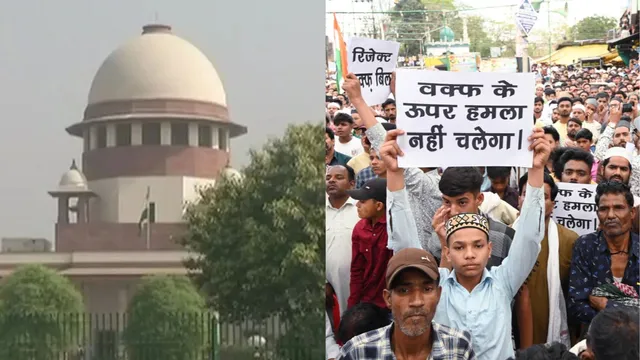- By Abhishek Sheoran
- Tue, 20 May 2025 07:40 AM (IST)
- Source:JND
The Supreme Court will today hear petitions challenging the constitutional validity of the Waqf (Amendment) Act, 2025. The top court may issue interim orders in the matter. A bench comprising Chief Justice BR Gavai and Justice AG Masih had on May 15 postponed the hearing for May 20, stating that it would hear arguments on three key issues for passing interim directions.
The first issue pertains to the denotification of properties declared as waqf either through "waqf by user" or "waqf by deed." The second issue raised by the petitioners relates to the composition of the State Waqf Boards and the Central Waqf Council. The petitioners argue that apart from ex-officio members, only Muslims should be allowed to manage these bodies.
The third contention is a provision that states if the collector investigates whether a property is government land, then such property will not be considered waqf property during the course of the inquiry.
"Waqf by user" refers to properties that have long been used as waqf property, even if there is no written waqf deed or formal documentation. Such properties are considered waqf based on long-standing use.
The bench had directed senior advocate Kapil Sibal, appearing for the petitioners and Solicitor General Tushar Mehta, representing the central government, to submit their written notes by May 19. However, the court made it clear that it would not consider requests for an interim stay on the original Waqf Act of 1995.
In an earlier hearing, the central government assured the court that currently registered and notified waqf properties, including those under waqf by user, would not be denotified for the time being. It also stated that non-Muslim members would not be appointed to the Central Waqf Council or the State Waqf Boards.
Previously, a bench headed by former Chief Justice Sanjiv Khanna had been hearing the matter. Following Justice Khanna’s retirement on May 13, the cases were transferred to the bench headed by Justice Gavai.

